List items
Items from the current list are shown below.
Sailfishos
No, this is to do with my Jolla phone. Back in the day, before smartphones were ubiquitous, many phone manufacturers tried to lure in the punters by offering interchangeable fascias or backplates. Not very subtle, or high-tech, but presumably effective.
Well, Jolla have decided to return to this, while taking the opportunity to update it for the 21st Century. Each Jolla smartphone appears to be built in two halves, split parallel to the screen and with the back half ("The Other Half") replaceable to provide not just different styles, but also additional functionality. The extra functionality is provided by cleverly using NFC-detection of different covers, along with the ability for covers to draw power from and communicate with the main phone via a selection of pins on the back.
At the moment there are only four official Other Halves that I'm aware of: Snow White (the one that comes as standard), Keira Black, Aloe and Poppy Red (the preorder-only cover). They use the NFC capability to change the styling of the phone theme as the cover is changed, but in the future there's a hope that new covers might provide things light wireless charging, solar charging, pull-out keyboard, etc.
For me, the interesting thing about the phone has always been the Sailfish OS that powers it. As anyone who's ever set eyes on me will attest, I've never been particularly fashion conscious, so the prospect of switching my phone cover to match my outfit has never offered much appeal. However, since the good sailors at Jolla have released a development kit for The Other Half, and since it seemed like an ideal challenge to test out the true potential of future manufacturing - by which I mean 3D printing - this was not an opportunity I could not miss.
Rather brilliantly, the development kit includes a 3D model which loads directly into Blender.
From there it's possible to export it in a suitable format for upload directly to the Shapeways site. The model is quite intricate, since it has various hooks and tabs to ensure it'll fit cleanly on to the back of the phone. Sadly this means that most of the usual materials offered by Shapeways are unavailable without making more edits to the model (sadly, it will take a bit more work before it can be printed in sterling silver or ceramic!). My attempt to print in polished Strong & Flexible failed, and eventually I had to go with Frosted Ultra Detail. Not a problem from a design perspective, but a bit more expensive.
The result was immaculate. All of the detail retained, a perfect fit on the phone and a curious transparent effect that allows the battery, sim and SD card to be seen through the plastic.
Although a perfect print, it wasn't a good look. Being able to see the innards of the phone is interesting in an industrial kind of way, but the contouring on the inside results in a fussy appearance.
The good news is that all of the undulations causing this really are on the inside. The outer face is slightly curved but otherwise smooth. The printing process results in a very slight wood-grain effect, which I wasn't anticipating, but in hindsight makes sense. The solution to all of this was therefore to sand the outside down and then add some colour.
The colour I chose was a pastel blue, or to give its full title according to the aerosol it came in, Tranquil Blue. Irrespective of the paint company's choice of name, the result was very pleasing, as you can see from the photos below. The 3D-printed surface isn't quite as nicely textured as the original Other Half cover that came with the phone, but I believe most people would be hard-pressed to identify it as a 3D-printed cover. It looks as good as you might expect from mass-produced commercial plasticware.
With the design coming straight from the developer kit, I can't claim to have made any real input to the process. And that's an amazing thing. Anyone can now generate their own 3D printed Other Half direct from Shapeways with just a few clicks (and some liberal unburdening of cash, of course!). A brand-new or updated design can be uploaded and tested out just as easily.
It's genuinely exciting to see how 3D printing can produce both practical and unique results. The next step will be to add in the NFC chip (it turns out they're very cheap and easy to source), so that the phone can identify when the cover is attached.
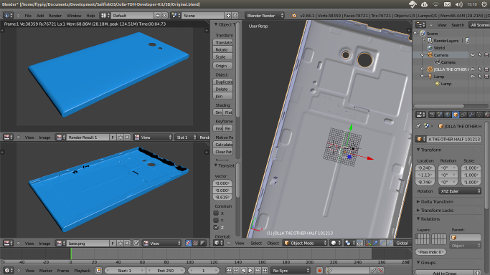
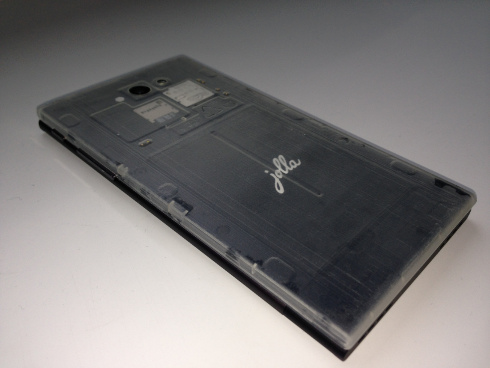
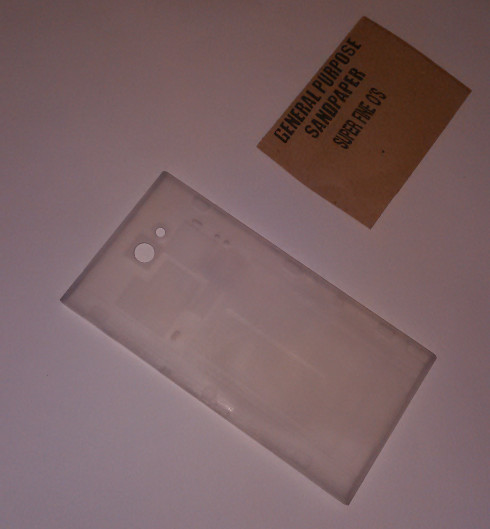
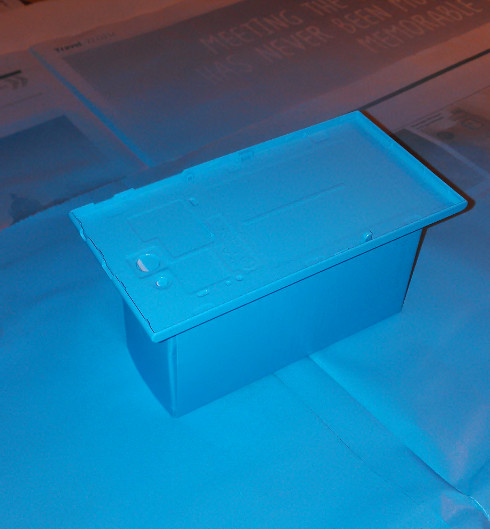
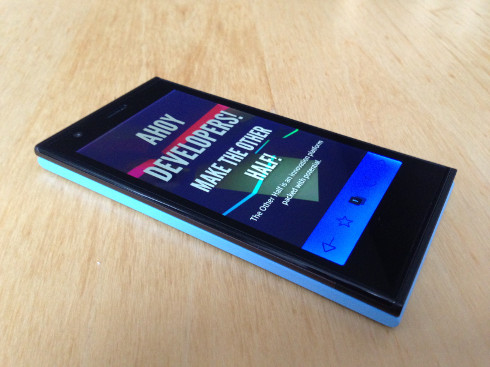
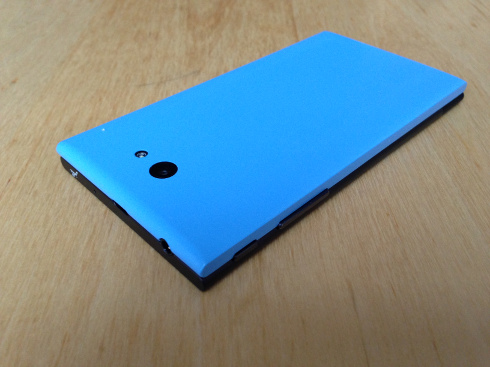
Comments
Uncover Disqus comments